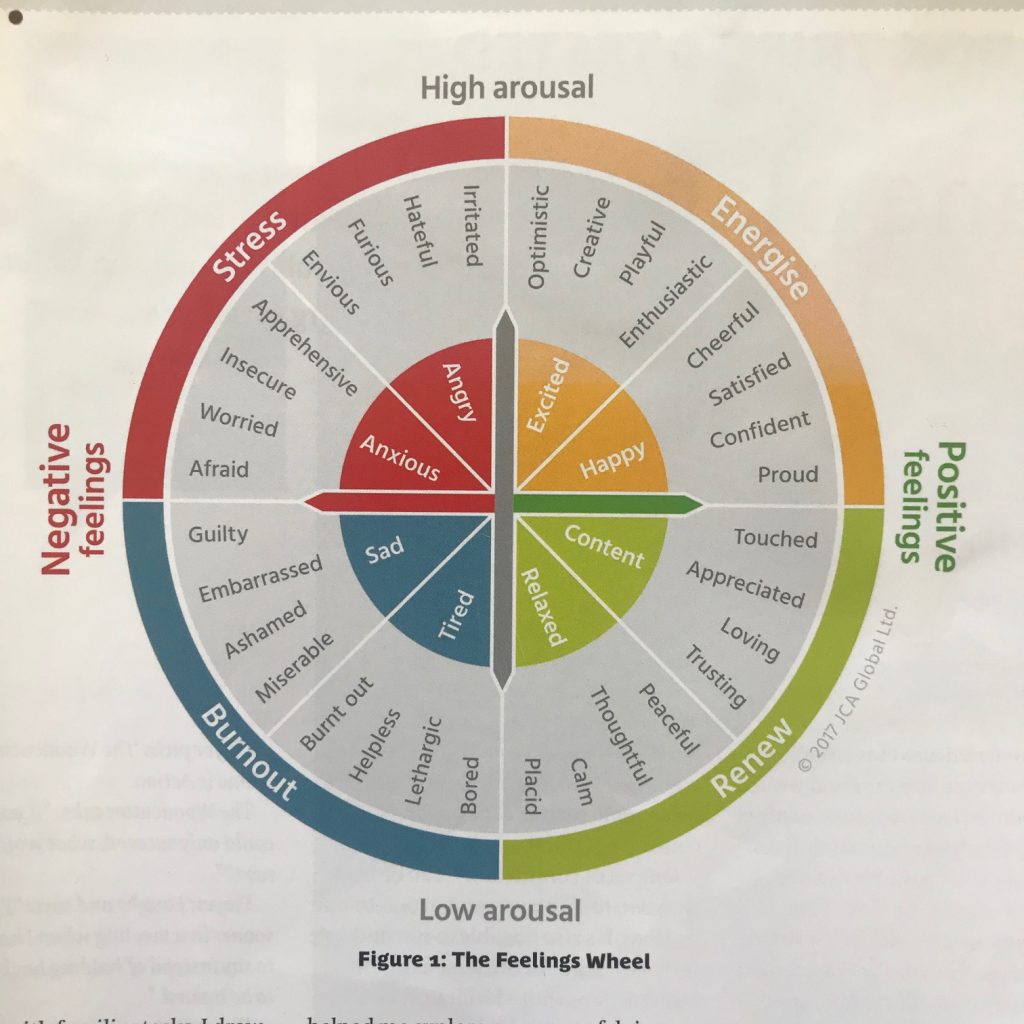In a previous blog I said I would write about empathy. This is a key part of our emotional intelligence during this time of COVID 19, a time full of uncertainty and difficulty.
Our personal version of lockdown may be safe and relatively easy. We must not assume that that is the case for everyone. Some feel unsafe because of their exposure to the virus in their job, others may have been furloughed or be in fear of losing their job. Parents are managing young children in closed – in environments, others are caring for vulnerable, elderly or disabled people while still trying to do their job.
Tuning in to other people: our family members, our employees, colleagues and clients and understanding their situation is key to living and working successfully with them.
So what is emotional intelligence? It is…
‘The ability to recognise we have emotions, name them and control them enough to enable us to choose how we behave’
McBride and Maitland (2000)
Daniel Goleman (1996) broke emotional intelligence down into: understanding of ourselves, managing ourselves, understanding others and managing relationships with others.
Empathy is a key part of how we understand others and manage relationships. It is the ability to recognize emotions in others, listen and understand them. It is being able to respond to someone else’s feelings and concerns.
In order to do this we need to manage our own emotions . It can be like being able to press a pause button on our emotions so we can really understand and tune into the other person to see and experience things from their point of view, with their feelings and concerns.
Susan David’s work on Emotional Agility outlines 4 stages to this
- Showing up – facing into my thoughts and emotions and behaviours with curiosity and kindness – I am feeling this.. I am thinking this..
- Stepping out – being able to observe myself in a detached way ..I am putting my own feelings on hold while I give attention to this other person..
- Walking my why – being clear of my core values and important goals in my life and staying true to them.. I want to give them my attention because I see them struggling and I can help them move forward..
- Moving on – either by small deliberate steps or by stepping outside my comfort zone and being.. I can be present, listen and help them understand their own emotions and thoughts.
In these COVID 19 times we may experience others as grumpy or uncommunicative if they are having a bad day.. so to build empathy we need to avoid being judgemental and be curious.
Some questions we can ask ourselves are:
How would I feel in the same situation as them?
Why do I think the other person is worried or angry?
What would it feel like to be them right now?
We can ask them open questions: ‘ What is happening ? How do you feel ?’
We can listen carefully to the reply to fully understand the perspective of the speaker. We can reflect back to them key things they have said.
As a parent or a leader we can help someone else grow and develop empathy by reflecting back to the other person the emotions they are expressing ( once again I refer you to the feelings wheel – see the photo) so that they feel they have been understood and heard. This can open the person up to change and growth because it starts to build trust.
Empathy can be broken down into 3 types:
- Cognitive: we take on the perspective of the other person
- Emotional: we have a similar emotional response as the other person
- Compassionate empathy: empathetic concern – a desire to help the other person – we tune into the other person’s feelings but regulate our own e.g. good coaches have this
Really tuning in and listening well to others and hearing their perspective, thoughts and feelings independent of our own experience and assumptions is a skill that serves throughout our lives.
I wish you well this week.


Leave a Reply